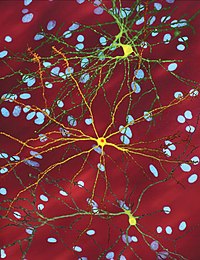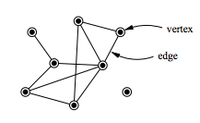
On the verge of diagnosis: Detection, reporting, and investigation of de novo variants in novel genes identified by clinical sequencing
Sign Up to like & getrecommendations! Published in 2018 at "Human Mutation"
DOI: 10.1002/humu.23646
Abstract: The variable evidence supporting gene–disease associations contributes to the difficulty of accurate variant reporting in a clinical setting. An evidence‐based scoring system for evaluating the clinical validity of gene–disease associations, proposed by ClinGen, considers experimental… read more here.
Keywords: novo variants; gene disease; evidence;

Clinical validity of expanded carrier screening: Evaluating the gene‐disease relationship in more than 200 conditions
Sign Up to like & getrecommendations! Published in 2020 at "Human Mutation"
DOI: 10.1002/humu.24033
Abstract: Clinical guidelines consider expanded carrier screening (ECS) to be an acceptable method of carrier screening. However, broader guideline support and payer adoption require evidence for associations between the genes on ECS panels and the conditions… read more here.
Keywords: carrier screening; gene; gene disease; clinical validity ... See more keywords

A clinical laboratory's experience using GeneMatcher—Building stronger gene–disease relationships
Sign Up to like & getrecommendations! Published in 2022 at "Human Mutation"
DOI: 10.1002/humu.24356
Abstract: The use of whole‐genome sequencing (WGS) has accelerated the pace of gene discovery and highlighted the need for open and collaborative data sharing in the search for novel disease genes and variants. GeneMatcher (GM) is… read more here.
Keywords: laboratory; disease; gene disease; disease relationships ... See more keywords

Gene–disease relationship evidence: A clinical perspective focusing on ultra‐rare diseases
Sign Up to like & getrecommendations! Published in 2022 at "Human Mutation"
DOI: 10.1002/humu.24367
Abstract: The ACMG framework for variant interpretation is well‐established and widely used. Although formal guidelines have been published on the establishment of the gene–disease relationships as well, these are not nearly as widely acknowledged or utilized,… read more here.
Keywords: disease relationship; gene disease; relationship evidence; disease relationships ... See more keywords

Drug repurposing by integrated literature mining and drug-gene-disease triangulation.
Sign Up to like & getrecommendations! Published in 2017 at "Drug discovery today"
DOI: 10.1016/j.drudis.2016.10.008
Abstract: Drug design is expensive, time-consuming and becoming increasingly complicated. Computational approaches for inferring potentially new purposes of existing drugs, referred to as drug repositioning, play an increasingly important part in current pharmaceutical studies. Here, we… read more here.
Keywords: literature mining; disease triangulation; drug gene; drug ... See more keywords

High-quality gene/disease embedding in a multi-relational heterogeneous graph after a joint matrix/tensor decomposition
Sign Up to like & getrecommendations! Published in 2022 at "Journal of biomedical informatics"
DOI: 10.1016/j.jbi.2021.103973
Abstract: MOTIVATION Node embedding of biological entity network has been widely investigated for the downstream application scenarios. To embed full semantics of gene and disease, a multi-relational heterogeneous graph is considered in a scenario where uni-relation… read more here.
Keywords: graph; multi relational; gene disease; gene ... See more keywords

100 Years of evolving gene-disease complexities and scientific debutants
Sign Up to like & getrecommendations! Published in 2020 at "Briefings in bioinformatics"
DOI: 10.1093/bib/bbz038
Abstract: It's been over 100 years since the word `gene' is around and progressively evolving in several scientific directions. Time-to-time technological advancements have heavily revolutionized the field of genomics, especially when it's about, e.g. triple code… read more here.
Keywords: gene disease; evolving gene; gene; 100 years ... See more keywords

A global network of biomedical relationships derived from text
Sign Up to like & getrecommendations! Published in 2018 at "Bioinformatics"
DOI: 10.1093/bioinformatics/bty114
Abstract: Motivation: The biomedical community's collective understanding of how chemicals, genes and phenotypes interact is distributed across the text of over 24 million research articles. These interactions offer insights into the mechanisms behind higher order biochemical… read more here.
Keywords: network; disease; chemical gene; gene disease ... See more keywords

A systematic review and evidence assessment of monogenic gene-disease relationships in human female infertility and differences in sex development.
Sign Up to like & getrecommendations! Published in 2022 at "Human reproduction update"
DOI: 10.1093/humupd/dmac044
Abstract: BACKGROUND As in other domains of medicine, high-throughput sequencing methods have led to the identification of an ever-increasing number of gene variants in the fields of both male and female infertility. The increasing number of… read more here.
Keywords: development; gene disease; evidence; female infertility ... See more keywords

Simple ClinVar: an interactive web server to explore and retrieve gene and disease variants aggregated in ClinVar database
Sign Up to like & getrecommendations! Published in 2019 at "Nucleic Acids Research"
DOI: 10.1093/nar/gkz411
Abstract: Abstract Clinical genetic testing has exponentially expanded in recent years, leading to an overwhelming amount of patient variants with high variability in pathogenicity and heterogeneous phenotypes. A large part of the variant level data is… read more here.
Keywords: clinvar database; disease; web server; gene disease ... See more keywords

Heterogeneous Network-Based Inductive Matrix Methods for Predicting Biomedical Gene Disease
Sign Up to like & getrecommendations! Published in 2023 at "BioMed Research International"
DOI: 10.1155/2023/7121514
Abstract: Prediction of gene-disease associations has grown in popularity in recent biomedical research. However, positive and unlabeled (PU) issues and limited gene-disease association data are common concerns with present association prediction algorithms. A gene-disease association prediction… read more here.
Keywords: gene disease; prediction; inductive matrix; gene ... See more keywords